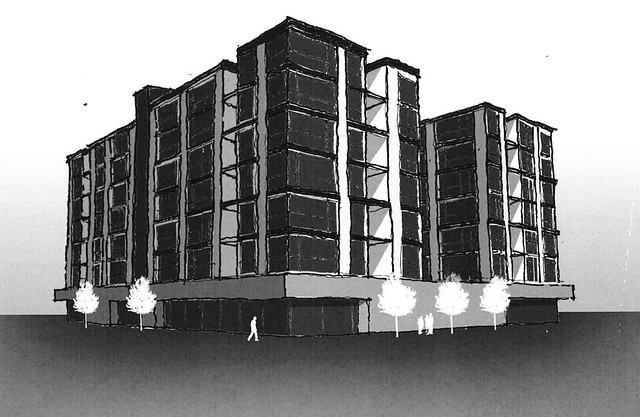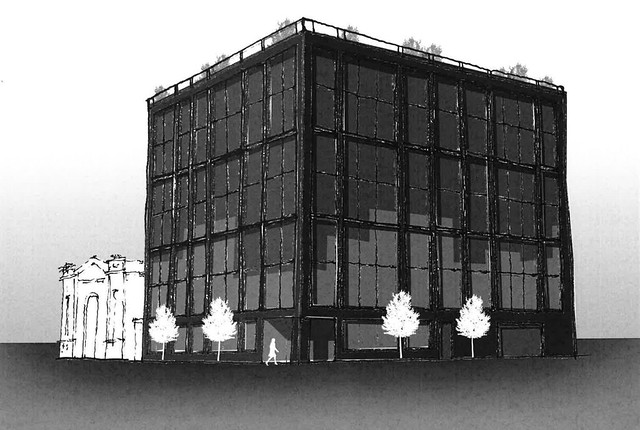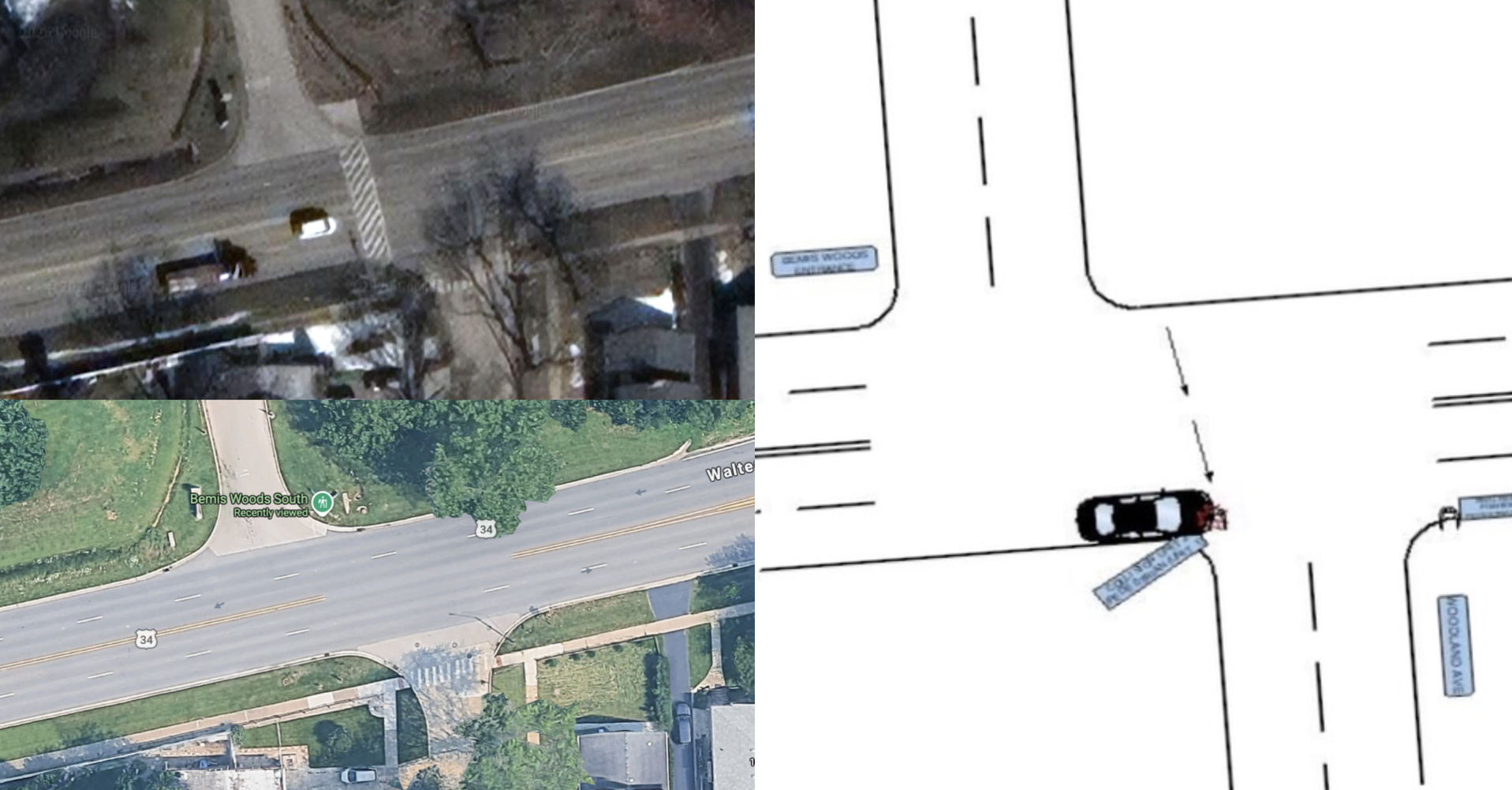Cedar Street Cos., the company behind the FLATS Chicago developments, which typically involve converting single-room occupancy buildings to more upscale rental units, has proposed two new apartment buildings near the Wilson 'L' station in Uptown.
One of the buildings would be virtually across the street from the station, at 1050 W. Wilson Ave., and the other would be a block east, at 975 W. Wilson, on the southeast corner of Wilson and Sheridan Road, DNAinfo reports. The first building at 1050 would feature 102 residential units and the second would have 138 units. Both structures would be seven stories tall.
The city's zoning code usually requires one car-parking space per unit for new construction, regardless if the developer says residents won't use them. However, Cedar Street is proposing transit-oriented developments with much lower parking ratios. 1050 W. Wilson would include 21 spaces, for a roughly 1:5 ratio, and 975 W. Wilson would have 52 spots, one space for every 2.7 units.
Since these buildings are a stone's throw from the Red Line, these are sensible ratios, but there's likely to be some opposition from existing residents. When dense, parking-lite TOD developments are proposed, neighbors typically argue that it result will in a parking crunch. At the same time, they worry that there will be more traffic congestion, which is exactly what happens when developers provide too much parking, encouraging new residents to bring cars to the neighborhood.
However, Uptown is a great place to build TOD. In addition to the excellent Red Line access, the neighborhood is also served by two express buses to downtown. These proposed developments would be nearly adjacent to Truman College, and there's plenty of retail nearby, including a Jewel-Osco less than a ten-minute walk from both sites.
More residents means more shoppers supporting local businesses. The Metropolitan Planning Council's new TOD Calculator (which uses data from my Chicago Cityscape website) estimates that the residents in these two buildings would add over $1,000,000 to local retail sales annually, and the properties would contribute more than $5 million in tax revenue over 10 years.
In this part of Uptown, 37 to 49 percent of households don't own cars and about 53 percent of residents take transit to work. The CTA is currently renovating the Wilson station to add a third entrance on Sunnyside Avenue, make it wheelchair accessible, and create a transfer to the Purple Line. After the rehab is completed, it's likely the percentage of transit commuters will increase significantly.
Cedar Street is seeking a zoning change for both Wilson Avenue proposals to allow for higher density than is currently permitted at these sites. The company will meet with neighborhood groups soon to discuss the proposals.
Two blocks north at Lawrence Avenue and Sheridan Road, Cedar Street is converting the Lawrence House SRO to a FLATS building with 344 market-rate apartments targeted at young professionals. It's worth noting that this kind of conversion has faced opposition because it displaces low-income residents, although Cedar Street does provide financial and logistical assistance to help former tenants relocate. Last year, City Council passed a moratorium on new SRO conversions.
Built in 1928, Lawrence House was last occupied in 2012. The building has zero off-street parking spaces and the renovation won't adding any. That means that, even though the new tenants will likely be more affluent than the previous ones, they won't have have an incentive to bring more cars to Uptown. The building is a block from the Lawrence Red Line station, which the CTA is also planning to fully rebuild, widening the platforms and adding wheelchair access.
Chicago's transit-oriented development ordinance, passed in fall of 2013, has been wildly successful in encouraging the construction of dense, low-parking housing near 'L' stations. Over 20 buildings have been proposed and at least six of them are under construction. It appears that the new law has been the primary impetus for building much-needed new multi-family housing in the city's neighborhoods.
That success provides ammunition for the Metropolitan Planning Council's "Grow Chicago," a new initiative that promotes TOD as a way to boost Chicago's stagnant population growth and promote economic development, which the nonprofit announced this morning. We'll provide more details about Grow Chicago's recommendations soon.







